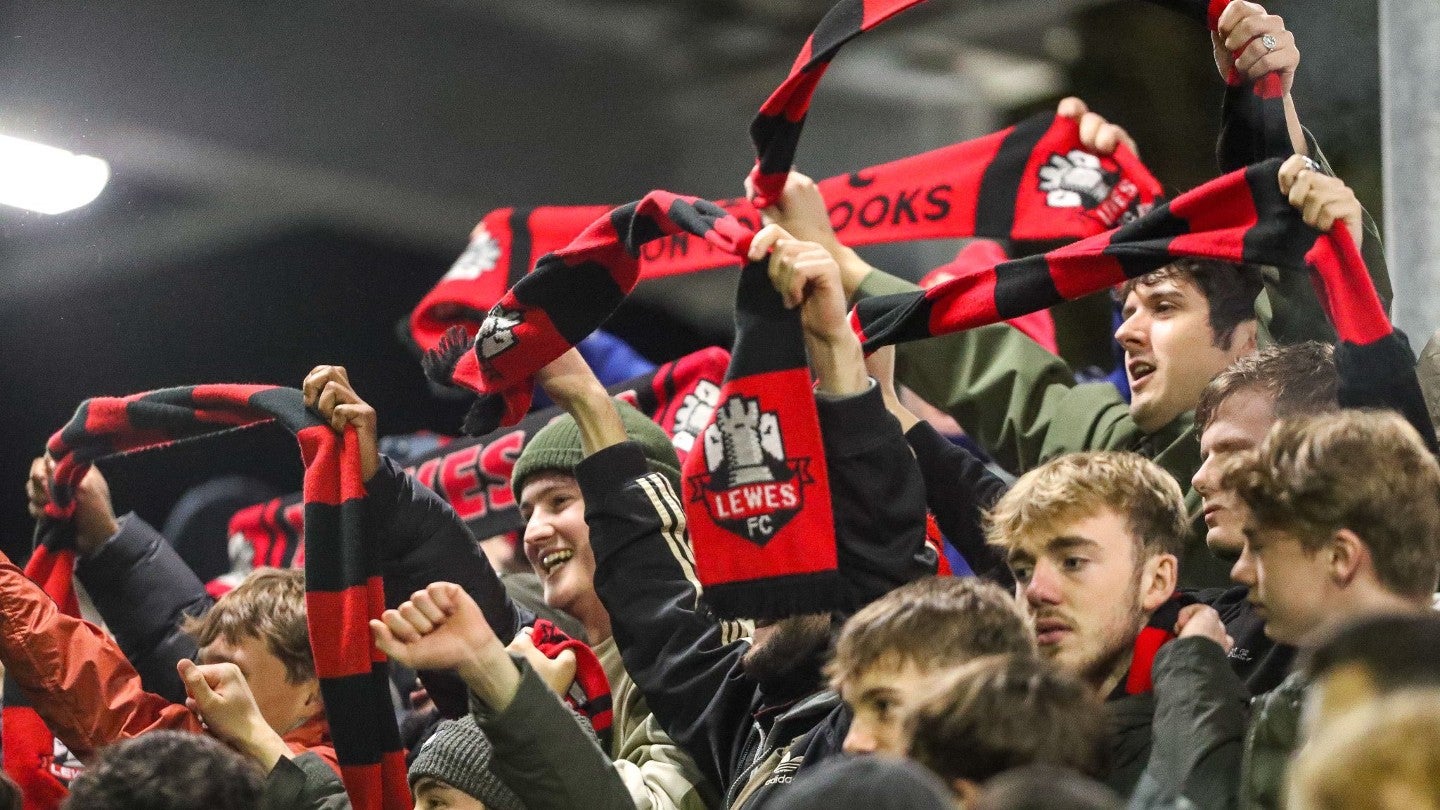
English lower-tier soccer club Lewes FC have walked away from talks with multi-club ownership group Mercury/13 as the bid would have seen the US investor take a co-ownership role but provide funding solely for Lewes’ women’s side.
In a statement, Lewes pointed to the “club’s foundational principles” as a key factor in turning down the deal, saying these “diverge considerably from Mercury/13’s operating priorities”.
Lewes is entirely fan-owned and allocates identical budgets for their men’s and women’s teams.
Who are Mercury/13?
The deal, supported by 67.8% of Lewes fans when put to the vote in November, is part of Mercury/13’s wider drive to invest $100 million in various women’s soccer teams across Europe and Latin America.
The group is backed by former England international Eniola Aluko and former FIFA chief innovation officer Luis Vicente, among others.
How well do you really know your competitors?
Access the most comprehensive Company Profiles on the market, powered by GlobalData. Save hours of research. Gain competitive edge.

Thank you!
Your download email will arrive shortly
Not ready to buy yet? Download a free sample
We are confident about the unique quality of our Company Profiles. However, we want you to make the most beneficial decision for your business, so we offer a free sample that you can download by submitting the below form
By GlobalDataMercury/13 identified the potential for Lewes, currently in the Women’s Championship, to tap into the skyrocketing popularity of women’s soccer.
Viewership of English soccer’s top-tier Women’s Super League (WSL) totalled 15.3 million from January to April this year, Women’s Sport Trust data indicates, while average live attendances are up 36% season on season.
Lewes are currently in the second-tier Women’s Championship, one below the WSL. They also reached the FA Cup quarter-finals last season, losing to Manchester United.
Club chief executive Maggie Murphy said of the decision: “Lewes FC is a club that has always had community and social impact at its core. Through our discussions, we found that while we shared a common belief in the future growth prospects of women’s football, the structure needed to make this specific opportunity work would be too disruptive to other values that we hold dear.”
Rags to riches: an investment opportunity?
While unsuccessful, Mercury/13’s bid represents a wider trend of investors identifying women’s teams – and lower-league men’s teams – as opportunities for growth in one of the world’s most popular sports.
The rise of Welsh side Wrexham FC under the shrewd ownership and rampant publicity of Hollywood A-list actors Ryan Reynolds and Rob McElhenney has become a harbinger for US investors chasing big returns through relatively unheard-of clubs.
In partnership with Knighthead Capital Management, renowned quarterback Tom Brady has since invested in Birmingham City. Swansea and Ipswich Town were among other clubs to receive US investment.
But Mercury/13’s bid on Lewes FC’s women’s side shows targeting of a crossover demographic: lower-league English teams and the fast-growing women’s game.
More than two billion viewers tuned in for the Women’s World Cup in July and August, nearly double that of the 2019 edition, according to GlobalData’s Business of National Women’s Soccer League report.
The UK’s south coast appears to be attracting a disproportionate interest in this trend.
Investment is also expected to find its way to Brighton and Hove Albion women’s side, some 13km away from Lewes’ Dripping Pan stadium in the same south-coast county of East Sussex.
Brighton’s chief executive recently outlined plans to build the first stadium dedicated to women’s soccer in Europe, adding to the club’s history as one of the founding members of the restructured Women’s Super League in 2018-19.







